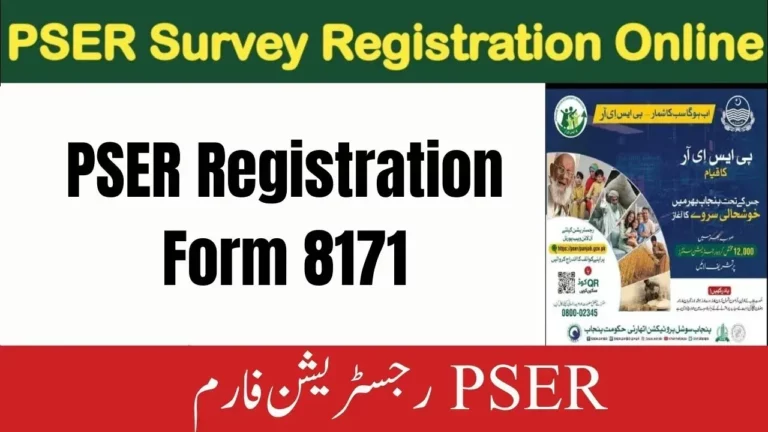BISP Chairperson Highlights the Need for Industry-Aligned Skill Development Programs

The Chairperson of the Benazir Income Support Program (BISP), Rubina Khalid, has called for a thorough assessment of the industrial sector’s needs to ensure that skill development programs are tailored effectively. The aim is to equip students with the skills that will make them employable immediately after completing their training. These remarks were made during a review meeting and a ceremony at the Lasbela Industrial Estates Development Authority (LIEDA) in Hub, Balochistan. At this event, four Mobile Registration Vans (MRVs) were handed over to the BISP Balochistan Zone to enhance the registration process in remote and underserved areas.
| Key Points | Details |
| Event Location | Lasbela Industrial Estates Development Authority (LIEDA) |
| MRVs Provided | 4 Mobile Registration Vans for BISP Balochistan |
| Focus of Skill Programs | Employment-oriented training |
| BISP Outreach | Targeting remote and underserved areas |
Aligning Skill Development with Industry Needs
Rubina Khalid emphasized the importance of designing skill development programs that align with the specific needs of the local industrial sector. By understanding what industries require, BISP can tailor its training programs to ensure that graduates possess the skills needed in the job market. This alignment is crucial for reducing unemployment and ensuring that students can quickly secure jobs after completing their training.
Empowering Women and Reaching Remote Areas
Senator Rubina Khalid highlighted BISP’s role in empowering women, particularly in remote areas like Balochistan, where access to services can be limited. BISP has played a significant role in providing millions of women with a recognized identity, which is essential for accessing various services and opportunities. The program, which was envisioned by Shaheed Benazir Bhutto, continues to focus on the economic empowerment of women and addressing the sense of deprivation in underdeveloped regions.
Expanding Access with Mobile Registration Vans
To extend its reach, BISP has introduced four new Mobile Registration Vans. These vans are specifically designed to bring BISP’s services to women in remote areas who might otherwise be unable to register due to logistical challenges. The MRVs will facilitate the registration process, help open bank accounts, distribute ATM cards, and ensure that eligible women receive financial support. This initiative demonstrates BISP’s commitment to ensuring that no one is left behind.
Strengthening Local Collaboration and Ensuring Transparency
Rubina Khalid also stressed the importance of working closely with local government representatives to improve the registration process and raise awareness about BISP. She reiterated BISP’s strict stance against corruption, emphasizing that any form of misconduct or mistreatment of beneficiaries would not be tolerated. This focus on transparency and ethical conduct is vital for maintaining the integrity of the program and ensuring that it serves the public effectively.

Future Expansion Plans in Balochistan
The BISP Chairperson announced plans to open additional offices across Balochistan to further extend the program’s reach. With over 2 million beneficiaries in the province, BISP is dedicated to expanding its services and ensuring that even more deserving women can access the support they need. The new offices, along with the Mobile Registration Vans, will play a crucial role in reaching those who have not yet been registered.
Conclusion
The Benazir Income Support Program continues to make significant strides in improving the lives of vulnerable populations across Pakistan. By aligning its skill development programs with industry needs and expanding its services to remote areas, BISP is helping to empower women and reduce poverty. The recent initiatives in Balochistan, including the deployment of Mobile Registration Vans, underscore BISP’s ongoing commitment to inclusivity and transparency in its operations.
Also Read: How to Apply for Punjab’s Apni Chhat, Apna Ghar Housing Scheme
FAQs
1. What is the purpose of aligning skill development programs with industry needs?
The goal is to ensure that students acquire relevant skills that will help them secure jobs immediately after completing their training.
2. How does BISP support women in remote areas?
BISP uses Mobile Registration Vans to provide essential services like registration, bank account opening, and ATM card distribution, ensuring that women in remote areas can access financial assistance.
3. What is BISP’s stance on corruption?
BISP maintains a strict zero-tolerance policy toward corruption, focusing on transparency and ethical conduct in all its operations.
4. What are BISP’s future plans for Balochistan?
BISP plans to open more offices and expand its services in Balochistan to reach and support more deserving beneficiaries in the region.





